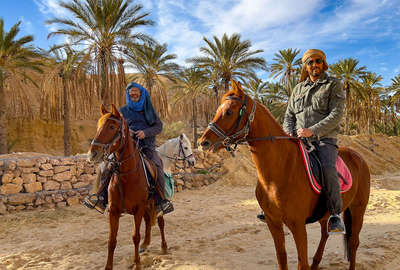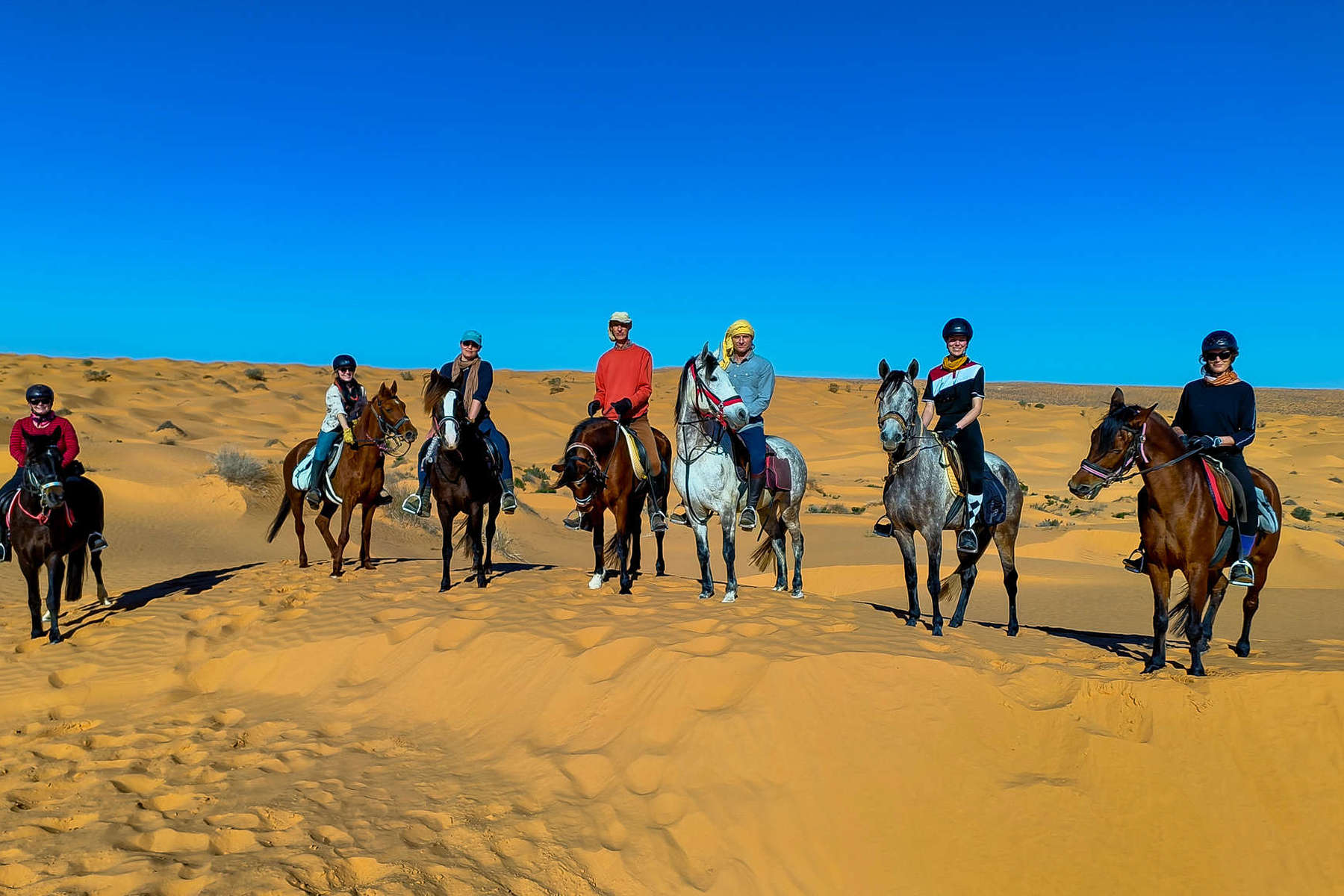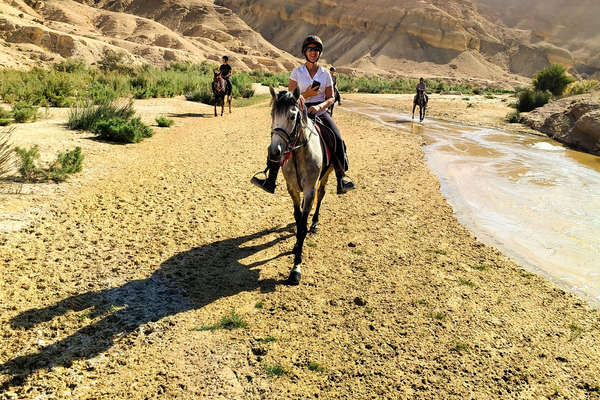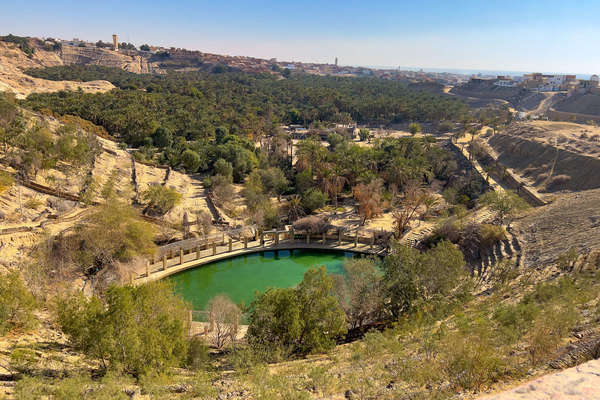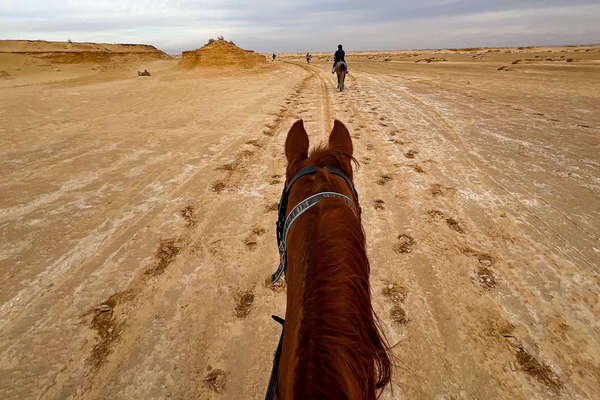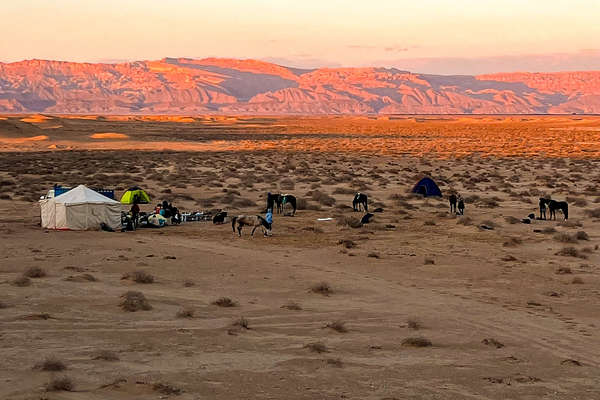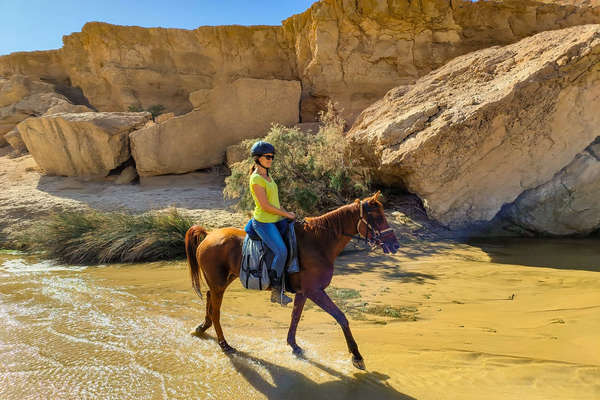Capital: Tunis
Area: 163,610 sq km (101,663 sq miles)
Population: 12.6 million (2024)
Population density: 79 per sq km
Language: Arabic is the official language, and most locals speak the Tunisian Arabic dialect. French is also widely spoken. Some rural areas still speak Berber.
Religion: Tunisians are predominantly Muslim, and Islamic rituals and holidays such as Ramadan are strictly observed.
Political regime: Parliamentary republic
The service industry, which includes the important tourism sector, accounts for more than 60% of GDP. Tunisia is also an exporter to the EU, exporting mostly machinery and textiles. Economic growth slowed after the revolution in 2011 and the country was also hit hard by the COVID-19 pandemic.
The unemployment rate was approximately 16% in 2023, with unemployment particularly affecting young people. Around 15% of the population are living below the poverty line.
Many people are employed in the services sector or in agriculture. Products include foods like olives, grains, fruits and dates. Many women work in textile manufacturing.
Tunisia has significant economic potential, partly due to its location close to Europe, sub-Saharan Africa and the Middle East. It has seen some growth in its tourism and export sectors in recent years, however, it continues to be challenged by factors such as high unemployment and political instability.
Tunisia has a rich history, having been controlled by a long list of empires and civilisations from the Phoenicians, Carthaginians and the Romans, to the Vandals, Byzantines, Arab kingdoms and the Ottomans.
In the 7th Century, the country was conquered by Arab Muslims, who brought Islam, which spread across the region. Tunisia eventually became a centre for Arab culture.
In the 16th century, the country came under the control of the Ottoman Empire, and in 1881, it was invaded by France, who established a protectorate, but eventually recognised Tunisia as an independent state in 1956. After independence, Habib Bourguiba, the country’s first president, ruled for more than three decades, and was known for his secular ideas and for establishing rights for women.
In January 2011, there was an uprising in Tunisia, dubbed the “Jasmine Revolution”. It saw the country’s leader Ben Ali ousted from power and sparked a wave of protests across the Middle East and North Africa that came to be known as the “Arab Spring”. Tunisia is said to be the only country among the group which was successful in transitioning from autocratic rule to a democracy.
Tunisia is situated in North Africa, bordered by Algeria to the west and southwest, Libya to the southeast and with a Mediterranean coastline to the east and north. The eastern end of the Atlas Mountains are in Tunisia, as well as the northern part of the Sahara.
Tunisia has low relief with vast plains. The highest point is Jebel ech Chambi (or Mount Chambi), which is located near the centre of the Algerian border and stands at 1,554 metres. The northern part of the country, with its Mediterranean climate, is known for its agriculture. The most fertile lands are south of Cape Bon. From Gafsa and Gabès, the landscape changes. Olive-covered plains and oak forests give way to a strange landscape of chotts, which are large saltwater basins, often dried up and covered with shiny salt crusts. The weather in Tunisia differs by region and season. In the north and along the coast, it has a Mediterranean climate, while inland and south it has a semi-arid to desert climate.
Tunisia has a rich and diverse culture, with influences from Africa, the Middle East, and the Mediterranean. The population is primarily Arab or Arab-Berber, and most Tunisians are Sunni Muslims.
Greetings normally involve a handshake accompanied by a verbal greeting. Kissing on the cheek occurs between family members and close friends.
It is polite to remove your shoes before entering a room if you see shoes placed near the door, and to accept a tea if offered. Eating with the left hand is considered impure. Tunisians eat with three fingers of the right hand: "God’s blessing is upon the food taken with fingers." Some will tell you that only the devil eats with one finger, prophets with two, believers with three, and gluttons with five.
Tunisia is said to be a moderate Muslim country combining modern and traditional customs, but it’s important to dress respectfully as a tourist, especially if you plan to visit rural areas and religious sites. Modest clothing is appreciated, which means for women, it’s best to avoid low-cut or revealing tops, tight clothes and short skirts which may cause offence. For men, it’s appropriate to wear long shorts, trousers or jeans, with shirts that have short or long sleeves. A scarf or shawl is useful for covering your head and shoulders in conservative areas or when entering religious sites. Swimsuits, bikinis and swimming trunks are ok at the beach or pool.
Sexual relations outside marriage are technically illegal in Tunisia, but this is rarely enforced in tourist areas. Public displays of affection are frowned upon. Same-sex sexual activity is also illegal in Tunisia. You can buy alcohol in Tunisia, except in supermarkets on Fridays, (though you can still order in hotels and bars). Smoking is generally allowed in public, but is restricted in some enclosed public buildings and on public transport. Many restaurants permit smoking but some have designated smoking areas. During Ramadan, it is important to respect the fasting period and avoid drinking, eating, or smoking in public.
You can take photos almost everywhere, except in/of/near military zones, government buildings and airports. It’s also wise to be cautious when photographing people or certain locations.
